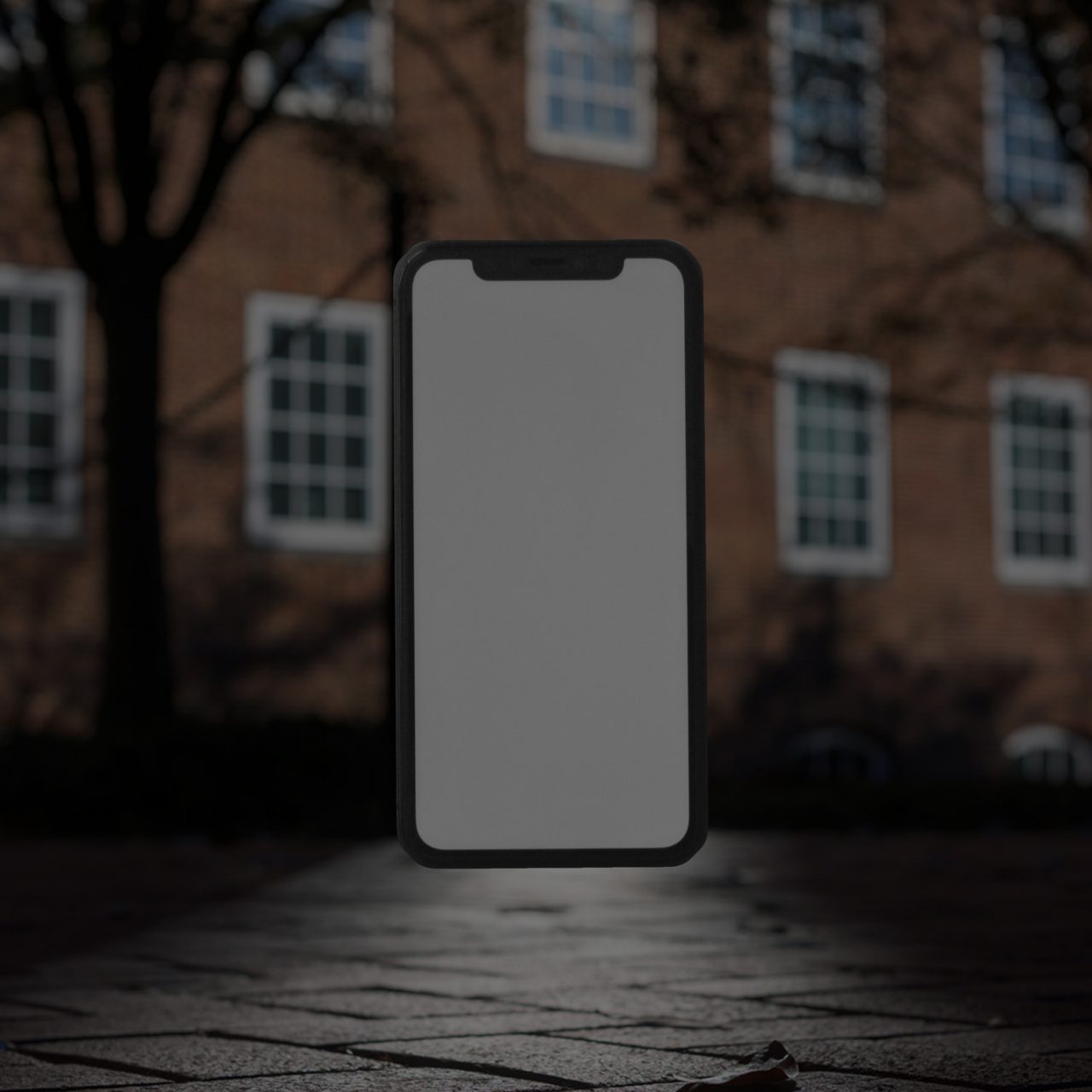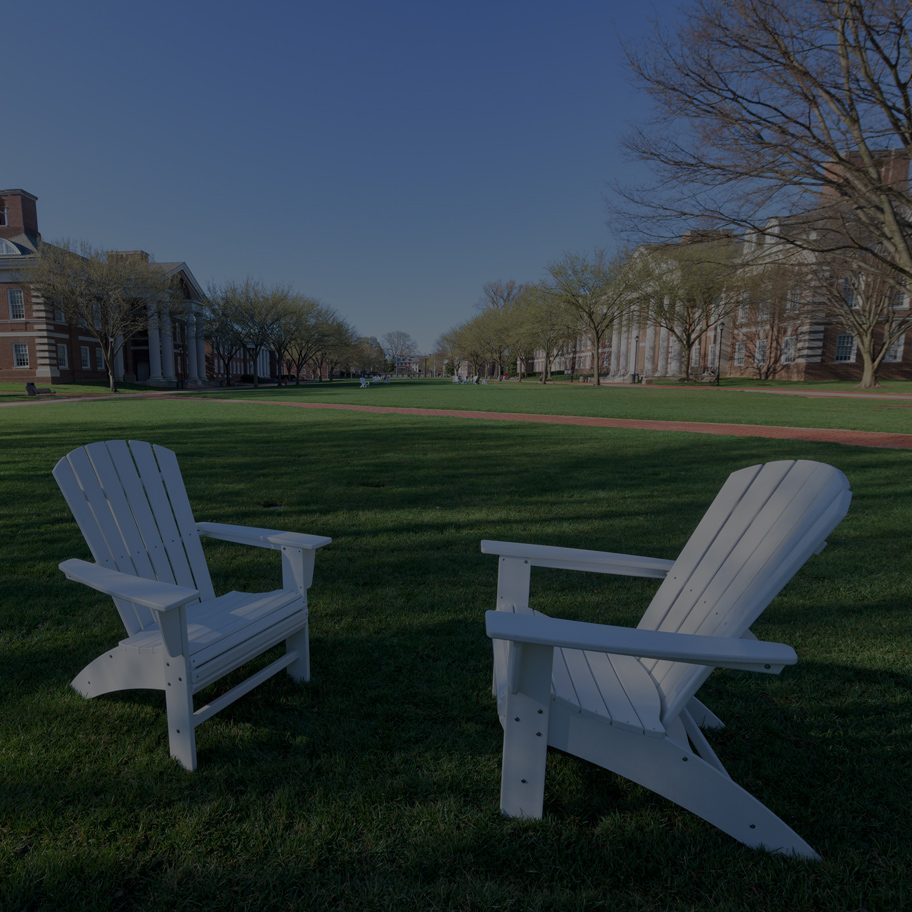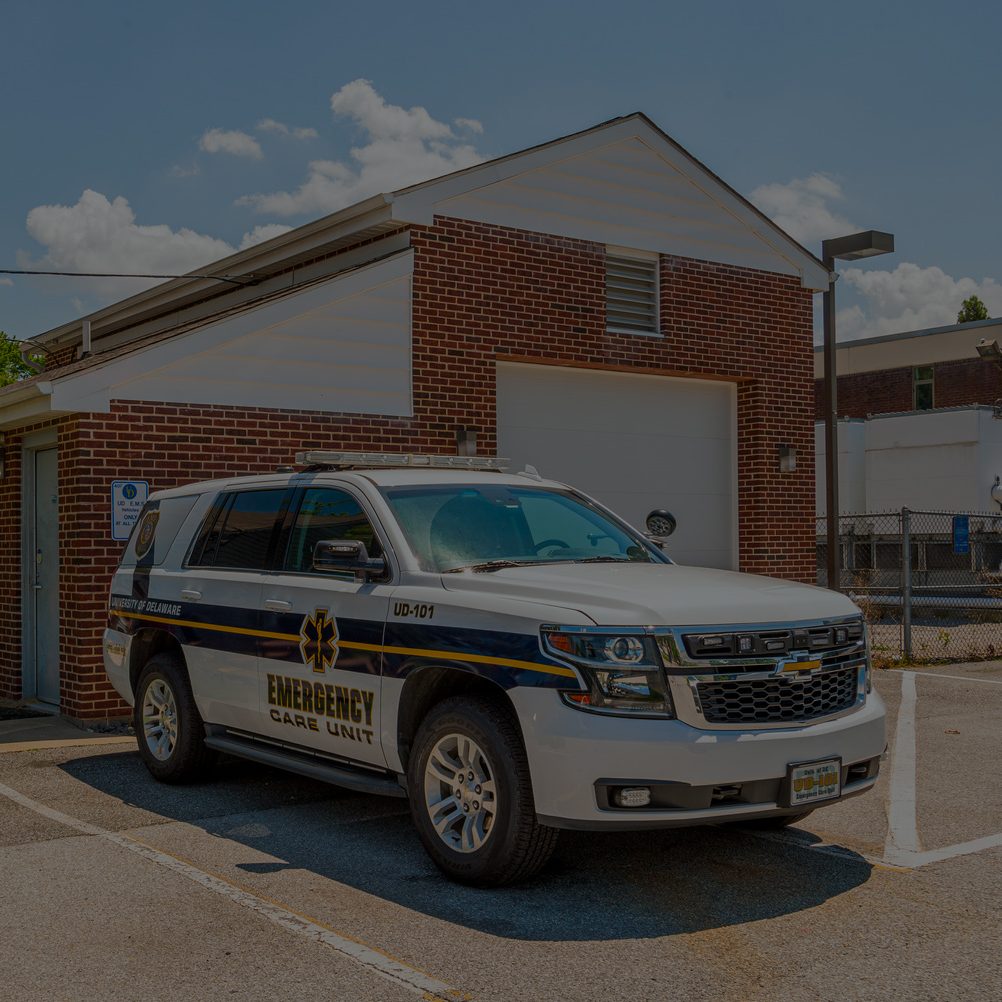
Amnesty

Amnesty
Student health and safety are of primary concern at the University of Delaware.
Conduct charges will not be filed against a student or student organization for violations of the Code of Conduct if assistance is sought due to a serious and immediate risk (such as harm due to intoxication, alcohol or drug overdose or hazing activities).

Call
Contact 911 or a University official when you have a concern.

Stay
Remain with the person who needs help.

Help
Cooperate with emergency personnel; answer questions and follow instructions.
Amnesty Protocol
Overview
If active assistance is sought due to a serious and immediate risk of harm, Community Standards & Conflict Resolution will not pursue conduct charges against a student or student organization for violations of the Code of Conduct resulting from the behavior.
Active assistance requires an individual to contact 911 or a University official (such as University of Delaware Police or Residence Life and Housing staff). Once an active call for help has been made, that individual must remain with and monitor the student’s condition until assistance arrives, and cooperate fully during the medical and investigative process. Amnesty will not be granted to the caller if they do not stay with the student for whom help was needed or if the caller does not cooperate fully during the medical and investigative process.
When Amnesty is granted, completion of educational requirements (such as BASICS, seminar or reflective paper) will be assigned. In most cases involving individual students, notification will be sent to the student’s parents or legal guardian. For cases involving organizations/groups, notification will be sent to administrators supporting the organization, both internal and external.
The granting of Amnesty does not preclude University status sanctions due to any other violations of the Code of Conduct not related to the behavior that presented the serious and immediate harm or threat of harm. In addition, Amnesty does not extend to the sale, distribution or manufacturing of alcohol or drugs. All incidents are examined on an individual basis to determine if Amnesty is applicable, as well as the most appropriate educational interventions.
While there is no limit to the number of cases for which a student or organization/group can receive Amnesty, serious or repeated incidents will prompt a higher degree of concern and response. Failure to complete educational interventions issued under this protocol will result in the application of student conduct charges.
Good Samaritan
Those students who contact a University official and provide active assistance for another student will not receive conduct charges related to the behavior associated with the granting of Amnesty. For example, if a student who has been consuming alcohol contacts a University official on behalf of another student who has also been consuming alcohol, Amnesty may be granted for both students. Conduct charges may be applied for behavior not related to the granting of Amnesty.
How to Apply
After the immediate concerning behavior has been addressed and resolved (i.e. after the call for help has been made and active assistance has been provided), please follow these steps:
- Open the Amnesty application.
- Once completed thoroughly and to the best of your knowledge, click the Submit button.
- When your application has been reviewed, you will receive an email with additional information, including an appointment to review the incident.
An application will not be accepted once the case intake process has concluded.
Alcohol and Drugs
When a student exhibits signs of alcohol poisoning or other concern resulting from ingesting alcohol or other drugs, contacting 911 or a University official (such as University Police or Residence Life and Housing staff member) is encouraged. Once an active call for help has been made, the individual who made the call must remain with and monitor the student’s condition until assistance arrives, and cooperate fully during the medical and investigative process.
Amnesty will not be granted where there was no active call for medical assistance. Students who are confronted by University officials (such as University of Delaware Police or Residence Life and Housing staff) will not be eligible for Amnesty and will be referred to the Community Standards & Conflict Resolution for conduct action.
VITALS
If you see a fellow Blue Hen experiencing even ONE of these symptoms, get help immediately! You must find an RA or call 911 to qualify for Amnesty. Don't forget, according to UD policy, after you call for help, you must remain with and monitor the student's condition until assistance arrives, and cooperate fully during the medical and investigative process.
Vomiting
Irregular Pulse
Trouble Breathing
Abnormal Skin
Loss of consciousness
Seizures
Substance Use Resources
On-campus and state/national resources offering information about and help for substance use.
Sexual Misconduct
Amnesty will be granted to students who may have violated the Alcohol Policy or Drug Policy at the time of an incident when they became a victim of sexual assault, sexual harassment or other form of sexual misconduct. Therefore, a charge of violating the Alcohol Policy or Drug Policy will not be applied to a student who reports being under the influence of alcohol or other drugs at the time of an incident involving sexual assault, sexual harassment or other form of sexual misconduct. Please see more information in the Sexual Misconduct Policy.
Sexual conduct will be considered “without consent” if no clear consent, verbal or non-verbal, is given. This includes situations in which an individual’s ability to consent freely is taken away by another person or circumstance. Examples may include, but are not limited to, when an individual is incapacitated due to alcohol or drugs, passed out, fearful for the individual’s safety or the safety of others, physically forced, intimidated, coerced, mentally or physically impaired, threatened, or confined.
Consent may not be inferred from silence, passivity, lack of resistance or lack of active response alone. Consent to one form of sexual activity does not imply consent to other forms of sexual activity, nor does a current or previous dating or sexual relationship constitute consent to sexual activity in every instance. Either party may withdraw consent at any time during the sexual encounter. Once withdrawal of consent has been expressed by words or actions that indicate a clear desire to end sexual activity, all sexual activity must cease immediately.
Hazing
The University of Delaware seeks to promote a safe, healthy and inclusive environment where students may participate in activities or organizations without endangering their health and safety. As an educational institution, the health and safety of our community members is paramount. Hazing is contrary to the mission upon which the University of Delaware is built. While individuals may be reluctant to report acts of hazing, the University encourages individuals to seek assistance utilizing this protocol for themselves or others.
When any student acts in good faith to report an activity that violates the University’s Hazing Policy and actively seeks assistance for themselves or another student, CSCR will not pursue conduct charges against that student for violations of the Hazing Policy. This may also apply to student organizations if they meet all other criteria for organizational hazing amnesty.
A student utilizing this protocol during or immediately after an act of hazing has occurred must provide active assistance for a student in need, report the hazing incident to CSCR immediately and provide complete and truthful information about the situation.
Active Assistance
Active assistance requires the reporter to contact 911 or a University official (such as University of Delaware Police or Residence Life and Housing staff) while the hazing situation is occurring. In addition to providing complete and truthful information to CSCR or other University officials, the student must cooperate fully during the medical, investigative or student conduct process.
Additional Policy Violations and Criminal Charges
The Hazing Amnesty Protocol does not preclude conduct charges due to any other violations of the Code of Conduct (not related to the Hazing Policies). Students/organizations may also be eligible for Amnesty for other behaviors which violate the Code of Conduct (such as Alcohol or Drugs).
Hazing is prohibited under Delaware state law. This protocol does not apply to any criminal or civil action that may be taken by law enforcement, including the University of Delaware Police Department or the Delaware Department of Justice.
Ineligibility
The organization/group involved in the hazing incident will not be eligible for Hazing Amnesty under this protocol if active assistance does not occur or if the organization/group (or any members) does not cooperate with the medical, investigation or conduct process. Hazing Amnesty will also not be granted if medical attention is required for any students involved in the incident.
Educational Interventions
All incidents are examined on an individual basis and the circumstances surrounding the reason to call for medical attention will be considered when determining the most appropriate educational interventions.
When interventions are determined for an organization/group, CSCR staff will consider the nature of the incident, impact on the campus community and sanctioning guidelines. They may also consult with a University staff member who has oversight for the organization or a representative from the organization’s national office (if applicable). Notification will be sent to the appropriate authorities inside or outside the University. Failure to complete educational interventions issued in conjunction with Hazing Amnesty will result in the application of student conduct charges.
Any member of organizational leadership who wishes to report previously unreported hazing incident(s) in an effort to seek help from University officials and to actively change or remedy the organization’s culture may do so. In such instances, Hazing Amnesty may be considered.
Amnesty FAQs
Help can be called by either calling 911 or the RA on duty. Regardless of whom you contact, you should stay with the person who needs help until additional help arrives. You should also follow any instructions you receive from Residence Life staff, UDPD or the EMTs.
First, you complete an Amnesty application. The application asks only for some general information about the incident, who was involved and what happened. After you submit your application, you will be scheduled for a meeting with a member of CSCR.
The application should be completed as soon as possible, and is typically done within a day or so after help is received. During the actual incident, don’t worry about the application – focus on calling for help and assisting those who respond (the RA, police, EMTs).
You will get an email from CSCR with a scheduled meeting date. You will attend the meeting and discuss the incident that occurred. You will work with a CSCR staff member to create an educational intervention plan that meets your needs.
Many times a student will attend the Brief Alcohol Screening and Intervention for College Students (BASICS) program as part of the educational intervention plan.
If you forget to fill out the Amnesty application, you will have the opportunity to complete this during your meeting with CSCR or be rescheduled for a later date to give you time to do so.
Absolutely! Good Samaritans also qualify for amnesty. CSCR wants to recognize the good decision made by anyone who calls for help.
Yes, there is no limit to the number of times a student can receive amnesty. CSCR does recognize that a student who receives amnesty multiple times may require resources and services to help the individual learn and heal outside of what the University can offer.
Any student who receives amnesty and is financially dependent on a parent or guardian will have a letter sent home. This letter includes information regarding the amnesty protocol, including the educational actions involved. The letter is a way to provide support for the student to ensure their academic success. Students are encouraged to share information regarding the incident with their parents or guardians before this letter is sent.
If a student receives amnesty they will not have a disciplinary record with CSCR. Documentation regarding the incident will be maintained by CSCR to aid in future discussion if necessary.
Information regarding the incident which resulted in amnesty will be provided to health and wellness staff, only to provide context for educational sanctions assigned to the student. Information will not be shared with anyone else, inside or outside the University.
Students who receive amnesty will not receive a fee through CSCR. Any costs incurred outside the University (i.e. ambulance, hospital) would be the responsibility of the student.
Staff at the hospital (the primary hospital is Christiana Hospital, which is about a 15-minute drive from campus) can call UDPD and a Public Safety officer will be dispatched to pick up the student and return them to campus.
Yes, the Newark Police Department has a drug and alcohol amnesty policy. Always call for help in an emergency.
All student organizations on campus are eligible for amnesty.
Amnesty is granted if a student reports being a victim of sexual misconduct while under the influence of alcohol or drugs. For more information about victims’ rights in sexual misconduct cases, please see the Sexual Misconduct Policy (section VI). Professional support and advocacy for victims is also available.
If a University official, in the context of completing their job responsibilities, finds you and then calls for assistance, amnesty will not be granted. Examples of a University official completing their job responsibilities include: an RA doing rounds, a UDPD officer patrolling campus or a custodian entering a bathroom to clean it.
Amnesty can be rescinded if you do not complete all educational interventions initially assigned when you meet with CSCR staff. In such a situation, the status of charges will be noted as “responsible,” additional sanctions will be added and the case will become reportable, based on the Retention and Release of Disciplinary Records Policy.
Community Standards & Conflict Resolution is part of the Division of Student Life, which advances equity and inclusion, deepens student learning and drives holistic development through education, experiences and communities.
